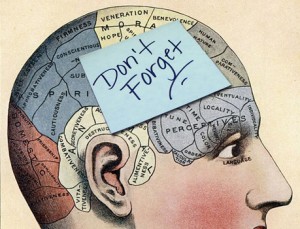Diagnostic and Statistical Manual (DSM)
The Diagnostic and Statistical Manual of Mental Disorders, or DSM, is an official classification system of mental disorders used in...
Read More
Eating Disorders
Health Risks Eating disorders (EDs) are characterized by chronicity and relapse and are some of the most common psychiatric disorders...
Read More
Externalizing Problems of Childhood
Externalizing problems in childhood can be broadly defined as disorders characterized by behaviors directed outward. More specifically, these behaviors typically...
Read More
The Psychology of Chronic Disease Flare-Ups
This article explores the intricate interplay between psychology and chronic disease flare-ups within the realm of health psychology. The introduction...
Read More
False Memories
False memory refers to the phenomenon of “remembering” something that never actually occurred. False memories can be small, such as...
Read More
CBT Techniques for Anxiety Disorders
The article explores the application of Cognitive-Behavioral Therapy (CBT) techniques in the context of anxiety disorders within the field of...
Read More
Internalizing Problems of Childhood
Internalizing problems of childhood are broadly defined as problems that occur within the child. Children with internalized problems often appear...
Read More
Cognitive Restructuring for Depression
This article explores the pivotal role of cognitive restructuring in the treatment of depression within the framework of health psychology....
Read More
Learning Disorders
Learning disorders (LD) refer to patterns of cognitive strengths and weaknesses in individuals that may create a risk for difficulties...
Read More
CBT for Eating Disorders
This article delves into the application of Cognitive-Behavioral Therapy (CBT) in the context of treating eating disorders within the realm...
Read More
Mental Retardation and Developmental Disabilities
Developmental disability is an umbrella term that broadly refers to a set of severe and chronic physical or mental impairments...
Read More
Enhancing Self-Esteem through CBT
This article explores the integral relationship between self-esteem and health psychology, focusing on the application of Cognitive-Behavioral Therapy (CBT) as...
Read More
Meaning Maintenance Model
Meaning Maintenance Model Definition People expect that certain experiences will be associated with one another. For example, if a person...
Read More
Neuropsychological Functioning
Neuropsychology is the study of brain-behavior relationships through objective, scientific methods. The main goal in neuropsychology is to understand how...
Read More
CBT in Substance Abuse Treatment
The article explores the pivotal role of Cognitive-Behavioral Therapy (CBT) in the treatment of substance abuse within the context of...
Read More
Oppositional Defiant Disorder
Oppositional defiant disorder (ODD) is a condition prevalent in a significant percentage of children that adversely impacts the individual and...
Read More
Stress Reduction Strategies in CBT
This article explores the pivotal role of Cognitive Behavioral Therapy (CBT) in stress reduction within the domain of health psychology....
Read More
Metacognition
Metacognition Definition Metacognition means “thinking about cognition,” and given that cognition generally refers to the processes of thinking, metacognition means...
Read More
Panic Disorders
A panic attack is the sudden onset of intense apprehension, tearfulness, or terror, often associated with feelings of impending doom....
Read More
CBT for Insomnia
This article delves into the application of Cognitive Behavioral Therapy (CBT) for Insomnia within the realm of health psychology. The...
Read More
Mind-Wandering
People’s experience of their own thoughts is that thoughts rarely stay still; sometimes people’s thinking is constrained by the task...
Read More
Personality Disorders
Personality disorders (PDs) pose a major challenge to the modern profession of mental health care. Unlike depression, anxiety, and other...
Read More
Cognitive Strategies for Pain Management
This article explores the pivotal role of cognitive strategies for pain management within the realm of health psychology. Pain, a...
Read More
Moral Reasoning
Moral Reasoning Definition Moral reasoning refers to the processes involved in how individuals think about right and wrong and in...
Read More
Posttraumatic Stress Disorder
Posttraumatic stress disorder (PTSD) is a psychiatric disorder characterized by profound disturbances in cognitive, behavioral, and physiological functioning that occur...
Read More
Behavioral Activation in CBT
This article delves into the intricate realm of Behavioral Activation (BA) within the framework of Cognitive Behavioral Therapy (CBT) as...
Read More
Motivated Cognition
Motivated Cognition Definition When people think and reason, they sometimes have a vested interest in the outcome of their thinking...
Read More
Psychological Defenses
Use of the term defense within psychology and counseling has a long and complex history beginning in the late 19th...
Read More
CBT for Post-Traumatic Stress Disorder
This article delves into the application of Cognitive-Behavioral Therapy (CBT) as a highly promising intervention for individuals suffering from Post-Traumatic...
Read More
MUM Effect
Despite the folk wisdom that “no news is good news,” almost everyone is reluctant to communicate bad news. For example,...
Read More
Psychological Well-Being
Psychological well-being (PWB) is a theory of positive psychological functioning that focuses on the human capacity to develop, function effectively,...
Read More
Illness Narratives and Mental Health
This article in health psychology explores the intricate interplay between illness narratives and mental health, emphasizing their pivotal role in...
Read More
Nonconscious Processes
Nonconscious Processes Definition Nonconscious processes (or unconscious processes) are all the processes people are not consciously aware of. As opposed...
Read More
Psychopharmacology and Human Behavioral
Drugs play an increasingly large role in civilization, and especially among the patients or clients who are seen by mental...
Read More
Impact of Illness Perceptions on Treatment Outcomes
This article delves into the intricate relationship between individuals’ illness perceptions and their impact on treatment outcomes within the realm...
Read More
Person Perception
Person Perception Definition Person perception refers to a general tendency to form impressions of other people. Some forms of person...
Read More
School Mental Health
School mental health programs and services in the United States have grown rapidly, facilitated by the recommendations of important initiatives...
Read More
Cognitive Representations in Chronic Pain
This article explores the intricate relationship between cognitive representations and chronic pain within the framework of health psychology. Beginning with...
Read More
Personality Judgments Accuracy
The accuracy of personality judgments refers to an area of research in which people evaluate the thoughts, feelings, and behavior...
Read More
Schizophrenia
Schizophrenia, derived from the Greek for “severed mind,” refers to a mental disorder characterized by the fragmentation of mental functioning...
Read More
Altering Illness Beliefs through Intervention
This article explores the pivotal role of interventions in altering illness beliefs within the realm of health psychology. Beginning with...
Read More
Person-Positivity Heuristic
Person-Positivity Heuristic Definition The person-positivity heuristic is a tendency to evaluate individual people more positively than the groups to which...
Read More
Secondary Trauma
Secondary trauma is the emotional spread of the effect of trauma symptoms as a result of close and extended contact...
Read More
Personal Models of Illness in Healthcare
This article delves into the intricate landscape of personal models of illness in healthcare within the realm of health psychology....
Read More
Positive-Negative Asymmetry
Positive-Negative Asymmetry Definition The positive-negative asymmetry refers to two complementary tendencies regarding how people respond to positive and negative events...
Read More
Sleep Disorders
“Sleep tight and sweet dreams” used to be the phrase used when bidding a family member good night. Unfortunately, a...
Read More
Cognition and Illness Prevention Behaviors
This article explores the intricate interplay between cognition and illness prevention behaviors within the realm of health psychology. Beginning with...
Read More
Primacy Effect in Attribution
Primacy Effect in Attribution Definition The primacy effect concerns how one’s impressions of others are formed. Thus, it relates to...
Read More
Stress-Related Disorders
There is a lack of consensus on how to best define the concept of stress. Concerns related to the scientific...
Read More












